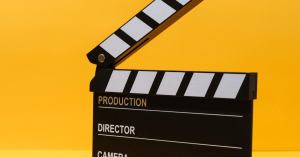Jonathan Scott might be best known for his refreshing home renovations on HGTV alongside twin brother Drew Scott, but now the television personality is branching out with his latest project flipping the switch on how we access power with the Independent Lens documentary, Jonathan Scott’s Power Trip. Since first breaking out with the Property Brothers empire in 2011, the twins have built homes of all sizes — many of which include eco-friendly features for which the two proudly advocate. But as Scott’s passion for environmental sustainability catapulted in recent years, he tells PopCulture.com exclusively that with the U.S. at a “tipping point” in the climate change discussion, now was the most suitable time to illuminate obstacles and opportunities for sourcing renewable energy.
In an exclusive interview ahead of Monday’s premiere that sends Scott across the country to uncover why renewable power isn’t available to everyone, the 42-year-old says the debate around solar energy has significantly evolved over the years. Mainly because “old myths” about it not being “good for business and it’s too expensive” have been debunked. “A lot of it’s proven now,” Scott told us in a telephone interview. “It is good for business. It’s one of the most cost-effective types of energy to produce. It doesn’t have the side effects of the human health and environmental aspects of energy.”
Videos by PopCulture.com
Scott adds that one of the things people don’t often think about, though, is having affordable energy accessible to everyone — something he explores with the three-year documented journey spotlighting frustrating interactions with utility companies, government officials, and confusing legislation.
“There are parts of the country that I don’t think people think this is America, where there are tens of thousands of homes that don’t even have access to power,” the Canadian producer and filmmaker said of his travels across the U.S., which saw him meeting with politicians, citizens making ends meet, coal workers and the Navajo nation that built its own utility-scale solar plant. “When I visited [them], it was incredibly touching in speaking with these folks and the lengths that they’re going through to try and make sure that this extreme poverty is vanquished and that people do have access because it helps the development of communities. It gives people opportunities that they wouldn’t otherwise have if they don’t have energy.”
Initially premiering at the Hot Docs Canadian International Documentary Festival this past spring, Scott admits he stumbled into this realm of energy sourcing when he installed solar panels in his Las Vegas home. But it wasn’t easy for the home renovation expert, who was confronted with an alarming set of hurdles. “I was met with so many challenges from the local utility — so many delays that seemed problematic when I thought I was just doing something that was good, so I dug in and I realized that Nevada in no way was the worst in the country,” he said. “There were places where there were these full-on wars being waged against renewable energy from fossil fuel utilities, and I thought this was stuff people really would want to know.”
One of the most deeply felt experiences through his journey in understanding the battle for our energy freedom was Scott’s conversation with former coal miner of 40 years, Billy Noble, who died earlier this summer from black lung disease — a form of coal workers’ pneumoconiosis (CWP), which occurs when coal dust is inhaled and causes scarring to the lungs. At one point in the conversation with Noble, the 71-year-old Kentucky native admits to the HGTV star he wanted more coal jobs but later backtracked when posed with whether he would be okay if his own family undertook such a position.

“I remember vividly in my mind the moment where all of a sudden it clicked in his mind and he realized that mining was not the way, and in his mind, that’s all they know in that area,” he said of the profound conversation. “There are a lot of those regions of the country that I visited where they are born and raised generational coal miners. That’s all they’ve had. The sad thing is when they have a government who’s telling them that the coal mining jobs are coming back, coal is coming back, it’s not the case. It’s not coming back because not only is it way too expensive to build coal-fired power plants, there are no longer any coal-fired power plants slated to be built because it’s too expensive. They still do have natural gas power plants, and nuclear and other being built, which is not the best way either, but coal is the dirtiest. But these people, that’s all they know.”
While the documentary might seem like an ardent journey to help communities, it is also incredibly personal for the Canadian who shares his grandfather was a coal miner. “I hate it when I see people who vilify somebody who worked in an industry like coal,” he said. “My grandfather was a coal miner. My grandfather died of black lung and he had cancer, as well, and for me, that’s the backbone of what built the country. But we had the industrial revolution because of people who worked in the coal mine, so why not just help them find a better way?”
Reiterating how there’s nothing to be gained from denouncing people who “just want to do a good job,” Scott stresses it’s important as a society to show them there’s another way and help these towns flourish. “A lot [of towns] I went to are dying — the kids are not coming back, there’s no development of any other kind, and the people are dying. It’s not normal,” he said. “When I was talking to Billy and some of the other people there, I said to them, ‘It’s not normal at your age to have already known hundreds of your friends and family who have died. That’s not normal.’ And they all died of black lung or cancer.”

With the documentary set to raise a heated conversation among viewers and social media, the longtime advocate of environmental responsibility and the advancement of clean, renewable energy says he hopes the subject matter is one we continue talking about.
“The big thing is it’s not a problem that we can just turn a blind eye to. If we did, our rights would be taken away,” he said of “shady tactics” that can often “manipulate” the masses with false information. “I think the takeaway is you need to understand how you get your energy and the choice you have because if you don’t understand it or you turn a blind eye, those rights will be taken away. So use your voice, use credible sources to get the proper information, and we can do some pretty wonderful things.”
Jonathan Scott’s Power Trip premieres Nov. 16 at 10 p.m. ET on PBS; check your local listings. For more information about the documentary and how you can make a difference, head to his official website. To stream the special PBS documentary, visit Independent Lens.








